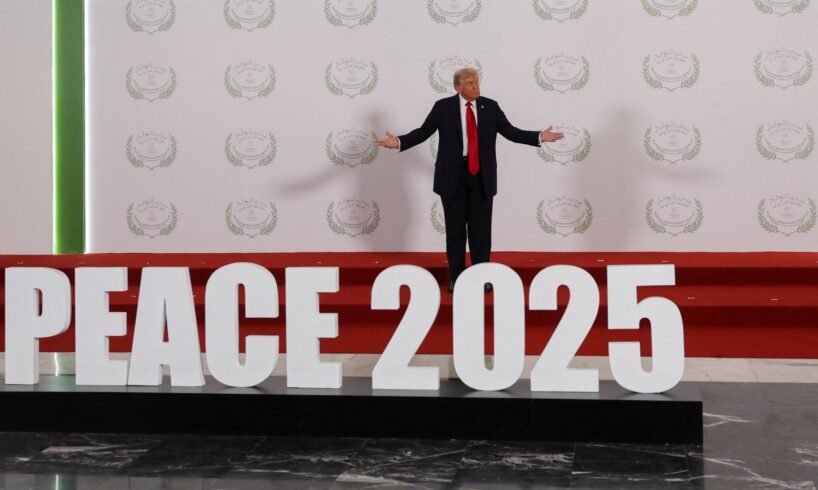
The 20 living Israeli hostages taken into Gaza on October 7 2023 have been released, but Hamas says locating the bodies of the others is proving difficult because of the devastation inflicted on the enclave over the past two years.
That has seen Israel half the amount of aid permitted to enter the strip, which it occupies and blockades, and delay plans to open the Rafah crossing to Egypt.
Read More:
Under the US-brokered ceasefire at least 600 aid trucks should be permitted to enter per day, but Israel told the UN on Tuesday that it would half that to 300 and block all fuel not used for “specific humanitarian infrastructure”.
At least five Palestinians were killed on Wednesday, with Al Jazeera putting the number at nine, with the IDF saying it had opened fire on “a potential threat” from people approaching its forces.
Mr Trump’s 20 point peace plan involves Hamas disarming, something it has previously said it would not do until a Palestinian state is established, and having no future part in the governance of Gaza.
The militant group did publicly agree to those aspects of the plan before the deal went into effect.
The President was hosting Argentina’s Javier Milei on Tuesday evening, and speaking to the gathered media appeared to make a direct threat to Hamas.
Mr Trump said: “They’re going to disarm, because they said they would disarm. And if they don’t disarm we will disarm them, and it’ll happen quickly and perhaps violently.
“I spoke to Hamas and I said, ‘You’re going to disarm, right?’ ‘Yes sir, we’re going to disarm,’ that’s what they told me. They will disarm or we will disarm them.
“They know I’m not playing games.”
When asked what his deadline would be, the President said “a reasonable amount of time”.
Minutes after he spoke, the IDF said the Red Cross was on its way to collect the bodies of more deceased hostages from northern Gaza.
Hamas had previously told mediators it would release the bodies of four hostages on Tuesday night, and an Israeli official later said they expected a handover to the red cross at around 10pm local time.
Red Cross spokesperson Christian Cardon had earlier said at a press conference in Geneva: “The search for human remains is obviously an even bigger challenge than having the people alive being released. That’s a massive challenge.
“I think there is clearly a risk that that will take much more time. What we are telling the parties is that that should be their top priority.
“All parties must ensure that the return of human remains is done under dignified conditions, and uphold dignity and humanity.”
Israel is also to hand over an unspecified number of Palestinian bodies, and the first group was released on Tuesday.
Around 2,000 living Palestinians were released by Israel as part of the ceasefire deal.
Most of those – around 1,700 – had been taken from Gaza and held without charge in the two years since the October 7 attacks.
A further 250, ranging in age from 19 to 64, had been sentenced to prison terms, many for attacks during the second intifada.
Both sides have accused the other of breaking the terms of the ceasefire, Israel says Hamas has not yet returned all hostages and the IDF has been accused of killing Palestinians.
Hamas says the delay in returning the bodies of the deceased captives is due to the difficulty in locating the bodies under the rubble of Gaza, while Israel says its troops were defending the line to which they have withdrawn.
Under the plan Israel has agreed to “Israel will not occupy or annex Gaza”, but it envisions a phased withdrawal.
This first phase will leave the majority of Gaza (around 55%) under control of the IDF, a second phase would see troops withdraw further, controlling around 40%, and in the final stage a 15% ‘security perimeter’ would be controlled by the IDF and would “remain until Gaza is properly secure from any resurgent terror threat”.
It’s unclear what this means and what the timeline is for full Israeli withdrawal.





